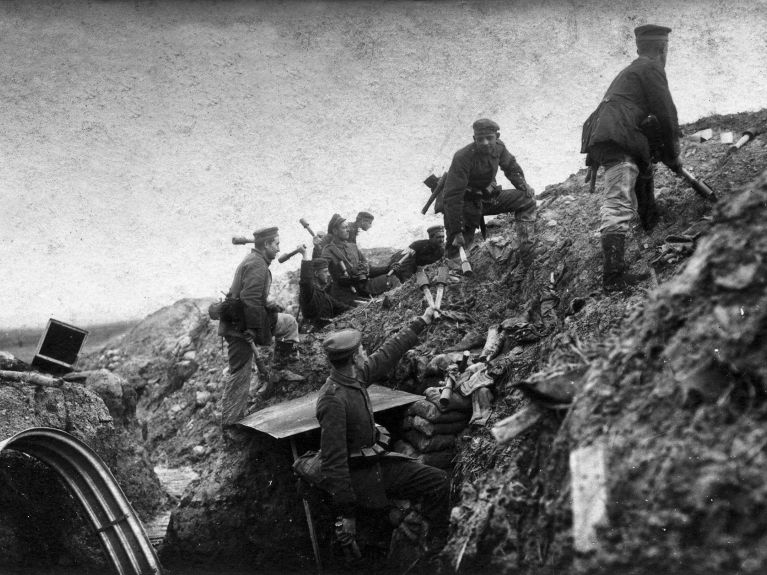The First World War
Farewell to the German question – Looking back at the long journey West: 1914–1918 The First World War.

It was not until October 1918, when there could no longer be any doubt about Germany’s military defeat in The First World War , that the decisive change to the constitution occurred, making the Reich Chancellor dependent on the confidence of the Reichstag. This act of making him responsible to Parliament was intended to encourage the victorious Western democracies to condone a lenient peace agreement and preempt a revolution from below. It failed on both counts, but from then on it was easy for the opponents of democracy to denounce the parliamentary system as ”Western” and “un-German”.
The revolution from below broke out in November 1918 because the October Reforms proved to be nothing more than a piece of paper: Large parts of the military were unwilling to subordinate themselves to political control by Reich leaders that were responsible to Parliament. However, the German Revolution of 1918/9 cannot be considered as one of the major or classic revolutions of world history: Germany around 1918 was already too “modern” for a radical break with its political and social fabric along the lines of the French Revolution of 1789 or the October Revolution of 1917 in Russia. In a country that at a national level had enjoyed universal and general suffrage for men for some 50 years, the issue could not be to establish a revolutionary educational dictatorship but more democracy. In concrete terms that meant: the introduction of women’s suffrage, making suffrage democratic in the individual states, districts and communities and the establishment of governments answerable to parliament.